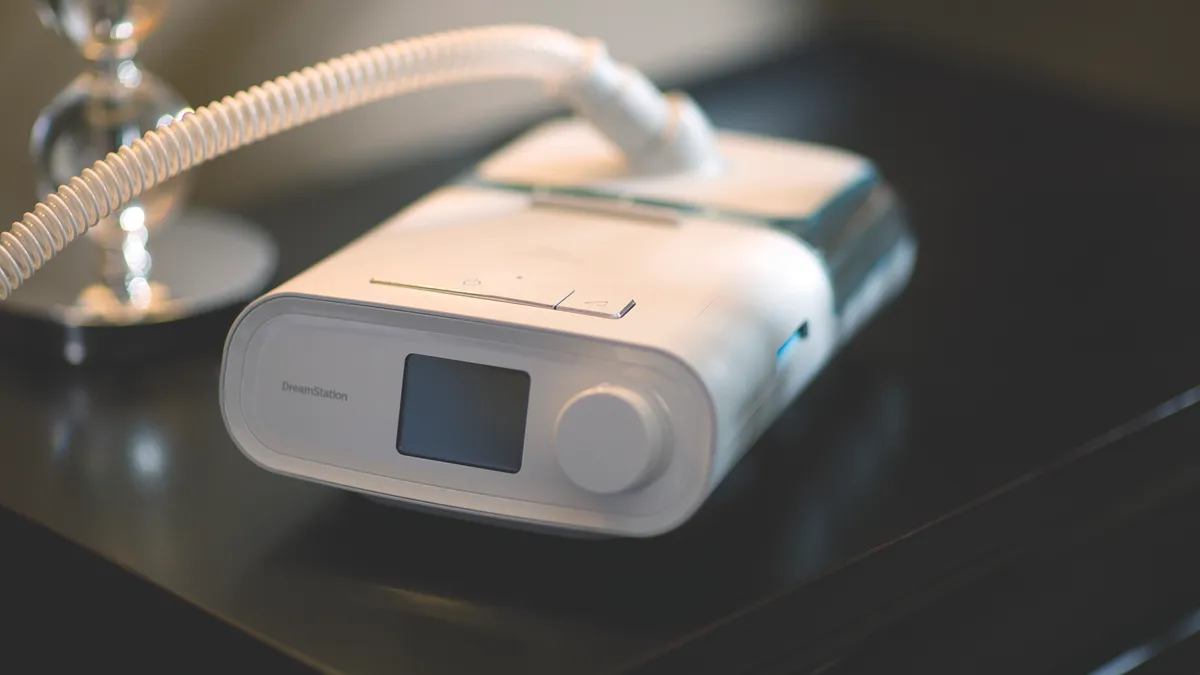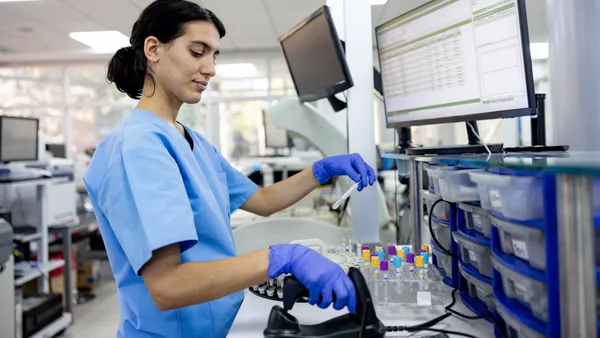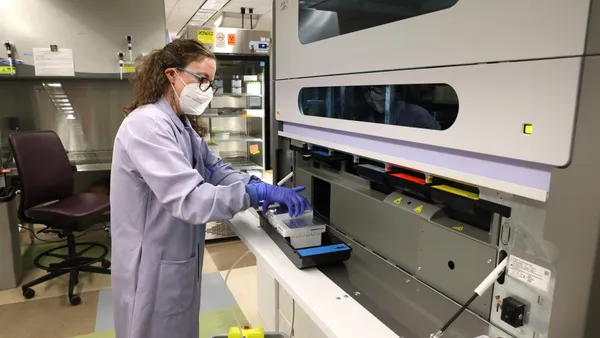Philips filed a lawsuit Monday against PSN Labs, claiming the company made mistakes in its risk analysis of the soundproofing foam used in Philips’ sleep apnea devices. If it weren’t for PSN’s results, Philips said it would have taken a different approach to its massive recall of sleep and respiratory devices, according to the complaint filed in the U.S. District Court for the Western District of Pennsylvania.
In the complaint, Philips alleged that PSN “committed numerous egregious errors” in its testing and analysis, and that PSN declined to share the raw testing data with Philips, saying doing so would compromise the testing firm’s independence.
“Philips RS has spent hundreds of millions of dollars toward this recall and would have pursued a different and more focused recall had PSN not made its serious mistakes and greatly overestimated the potential threat to patients,” the company said in the complaint.
PSN Labs did not immediately return MedTech Dive’s request for comment.
In June 2021, Philips began a recall of more than 15 million continuous positive airway pressure (CPAP) devices, bilevel positive airway pressure (BiPAP) machines and ventilators, after finding that foam used in the medical equipment could break down and be inhaled by patients. The Food and Drug Administration said foam particles and chemicals released by the devices could cause headaches, irritation, hypersensitivity or nausea and have toxic or carcinogenic effects.
Philips pushed back against claims about the foam’s toxicity in the lawsuit. Last year, the company said the devices are unlikely to harm patients’ health. Still, the FDA required Philips to conduct additional testing, explaining “we did not believe that the testing and analysis Philips had shared were adequate to fully evaluate the risks posed to users from the recalled devices.”
The FDA has not changed its stance on the potential health risks associated with the polyester-based polyurethane (PE-PUR) foam breakdown as of April. Philips agreed to stop selling many of its CPAP and BiPAP machines in the U.S. as part of a consent decree that month. The company and the FDA also agreed to a recall remediation plan to ensure patients get a new or refurbished device, or a partial refund.
The allegations
Philips contracted with Erie, Pennsylvania-based PSN Labs in 2020 to study the PE-PUR foam used in its sleep and respiratory care devices after receiving complaints about foam degradation.
At the time, Philips said it was evaluating the risks associated with the foam breaking down due to hot, humid conditions, and whether the use of ozone to clean the devices was causing the foam to degrade. PSN Labs was one of five independent laboratories Philips contracted with to assess the foam risk.
The lawsuit accused PSN of wrongly reporting that it had identified a mutagenic and genotoxic compound called dimethyl diazene. The compound is not emitted from the foam, Philips said. Philips also said the firm used the wrong type of ozone detector in its testing, leading it to say it had detected ozone in the devices when it is not a byproduct of foam degradation.
Philips also claimed that PSN overstated the risk of another volatile organic compound, called phenol, 2,6-bis.
Before recalling the 15 million devices, Philips had considered using filters as an interim solution to prevent degraded foam from reaching users, or limiting use of the machines to eight hours per night, but it ultimately determined more “drastic action” was needed because of findings about the health risks from exposure to the volatile organic compounds.
Philips is suing PSN for breach of contract and negligence. The company said it intends to recover expenses and reputational harm from the recall.
Philips has agreed to pay to more than $479 million to offset economic loss claims and $1.1 billion to settle personal injury claims related to the devices.










